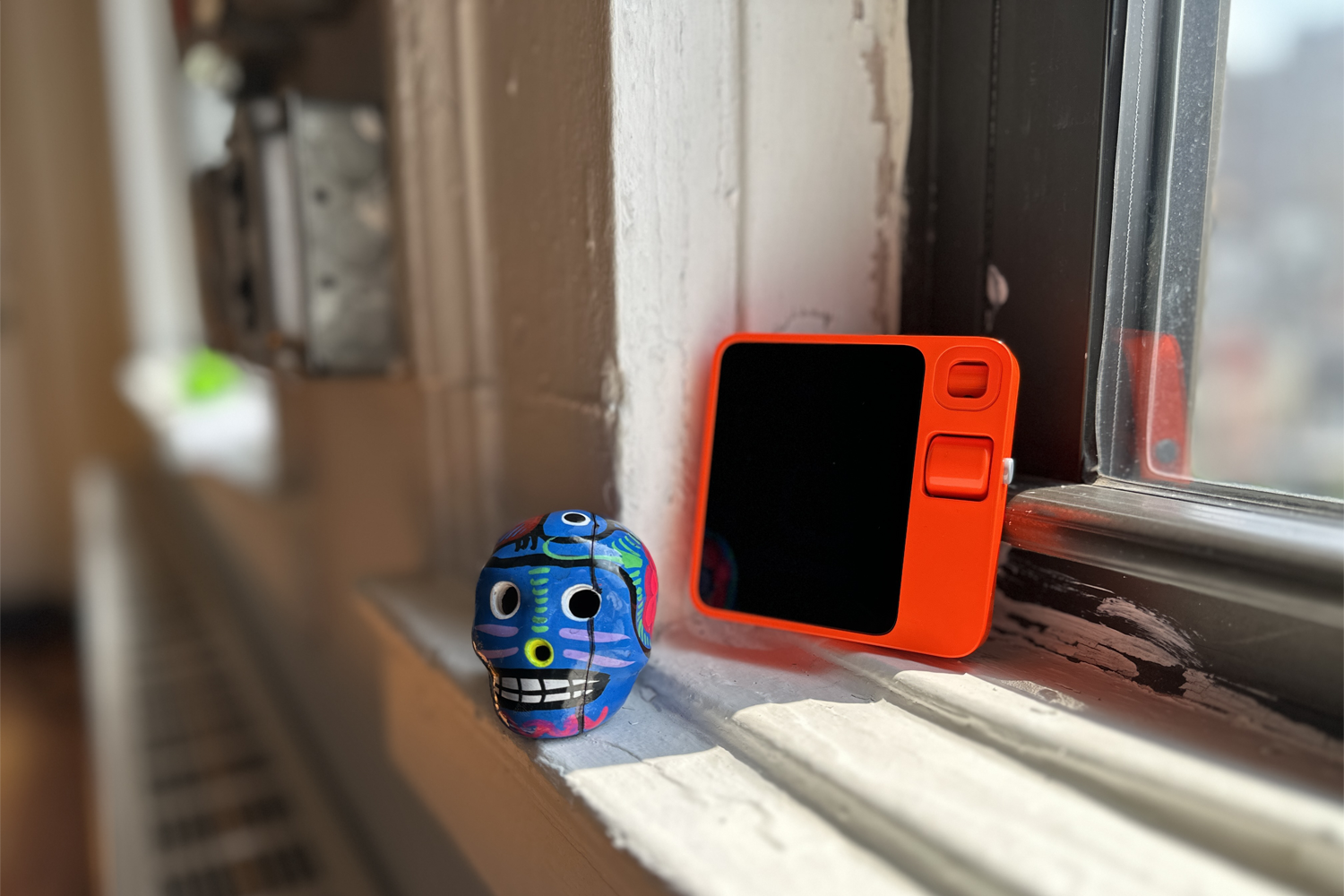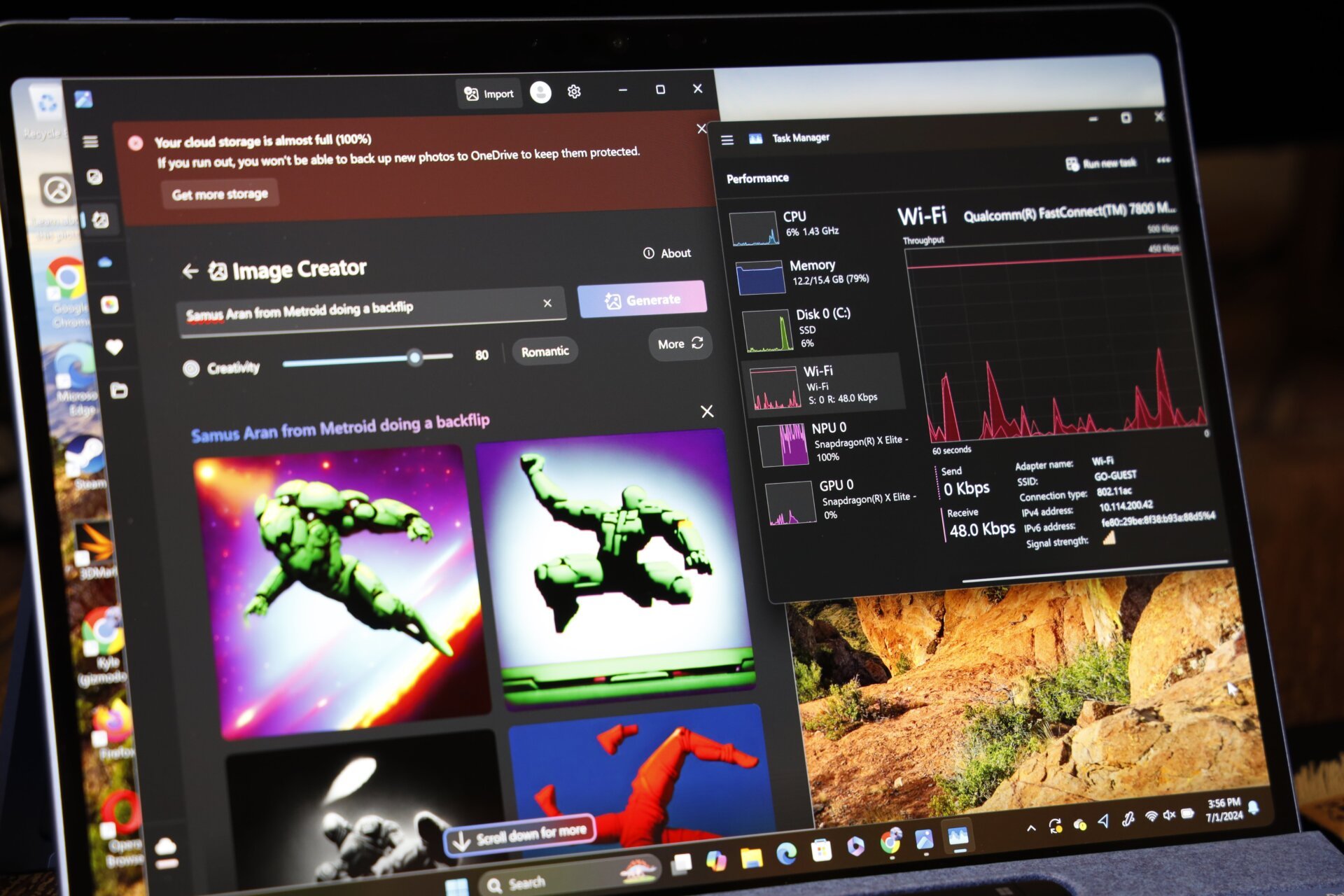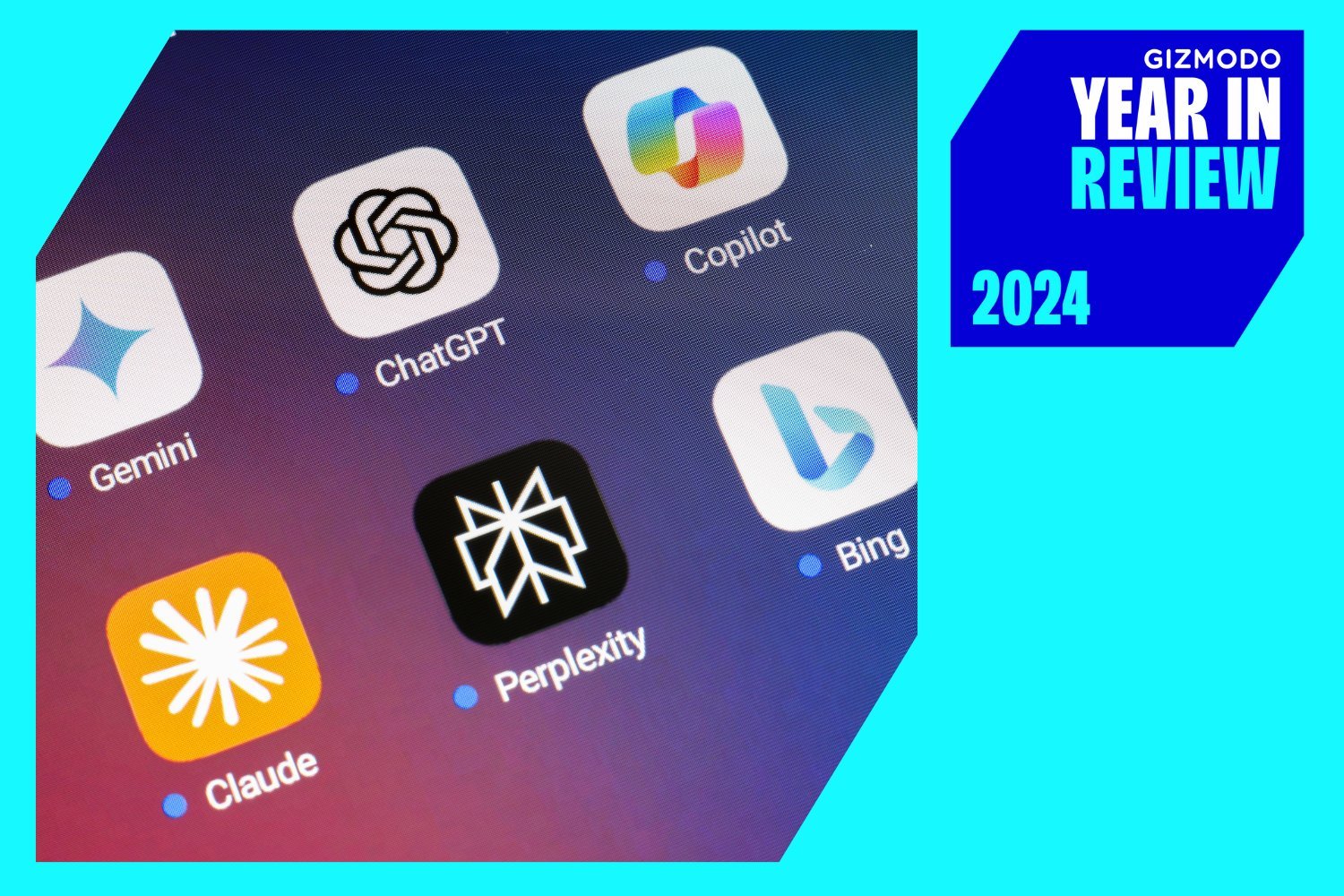The tech world thrives on the promise of “next year.” Two years into the AI “revolution,” we’re told 2025 will be the year on-device artificial intelligence truly shines. But where have we heard that before? 2024 witnessed a surge in AI hype, yet the reality fell short of expectations. AI-specific devices stumbled, on-device AI applications remained limited, and the most prominent use cases seemed to revolve around generating content, often of questionable quality. Now, the industry is pivoting to “agentic” AI, promising virtual assistants that seamlessly manage our tasks. Will 2025 finally deliver on the long-awaited AI revolution, or will it be another year of unfulfilled promises?
The Disappointment of Dedicated AI Devices
 Rabbit R1 next to a sugar skullThe Rabbit R1, marketed as an AI-everything device, finally added its promised “teach mode” in a late beta update. Photo: Kyle Barr / maagx.com
Rabbit R1 next to a sugar skullThe Rabbit R1, marketed as an AI-everything device, finally added its promised “teach mode” in a late beta update. Photo: Kyle Barr / maagx.com
2024 saw the launch of several AI-centric wearables and handhelds, like the Humane AI Pin and the Rabbit R1. These devices, however, arrived prematurely, offering little more than glorified chatbots with clunky software. The Humane AI Pin, despite its $700 price tag, struggled with object recognition, battery life, and overheating issues, ultimately leading to a recall of its charging pack due to fire risks. The Rabbit R1 fared no better, with its “personalized operating system” revealed to be essentially an Android app, reliant on cloud processing and raising security concerns about user data access. Even established brands like Meta faced challenges, with their Ray-Ban smart glasses exhibiting inconsistent image recognition.
Other AI hardware, such as the Plaud NotePin, found success with niche functionalities like AI-powered transcription, but these features often duplicated capabilities already available on smartphones and laptops. While developers have attempted to improve their offerings, with Rabbit introducing a “Teach mode” and Humane promoting its CosmOS for various platforms, the fundamental question remains: can these devices offer something truly unique and valuable beyond what our existing devices already provide?
The “AI PC”: A Missing Link
 The launch of “Copilot+” PCs resulted in a limited selection of AI image generator apps and video transcription features. Photo: Artem Golub / maagx.com
The launch of “Copilot+” PCs resulted in a limited selection of AI image generator apps and video transcription features. Photo: Artem Golub / maagx.com
Chip manufacturers heavily promoted neural processors (NPUs) in 2024, with Qualcomm’s Snapdragon chips powering Microsoft’s “Copilot+ PCs.” Despite the hype, the initial wave of AI PCs offered limited on-device AI functionalities, primarily consisting of image generators and live captions. Microsoft’s much-anticipated “Recall” feature, designed to provide “photographic memory” by transcribing screenshots, faced security concerns and delays. Apple’s late entry into the game, with macOS Sequoia introducing Image Playground and ChatGPT integration with Siri, also failed to impress, offering simplistic image generation and limited search functionalities.
The underlying issue is that current NPUs primarily handle basic AI tasks. More complex applications, such as running advanced AI models, require the power of GPUs like Nvidia’s GeForce RTX 4090 or the dedicated AI processor, Orin Nano. This performance gap highlights the limitations of current on-device AI capabilities.
The Rise of Agentic AI: Necessity or Hype?
 SamaltmanSam Altman, CEO of OpenAI, at the Allen & Company Sun Valley Conference. Photo by Kevin Dietsch/Getty Images
SamaltmanSam Altman, CEO of OpenAI, at the Allen & Company Sun Valley Conference. Photo by Kevin Dietsch/Getty Images
The shift towards “agentic” AI is partly driven by the limitations of current AI models. The “wall” refers to the diminishing returns of feeding more data to AI, suggesting a need for new approaches to AI development. As OpenAI co-founder Ilya Sutskever noted, the era of “scaling” is over, giving way to the era of “discovery.” This shift is evident in models like OpenAI’s GPT-o1, which prioritizes reasoning abilities.
However, these advancements may not translate into tangible benefits for average users. This is why companies like OpenAI are pushing AI agents like Altera, with rumors of an autonomous agent codenamed “Operator” on the horizon. Anthropic’s demo of Claude 3.5 Sonnet showcased the potential of agentic AI, demonstrating its ability to interact with applications like Google Chrome and manage calendars. However, this also raises privacy concerns, as these agents require access to sensitive personal information.
The Privacy Implications of Agentic AI
Agentic AI relies heavily on cloud processing, granting access to significant amounts of personal data. While Apple promises a private cloud computing structure to protect user information, other companies have yet to fully address these concerns. Microsoft’s current focus is on enterprise applications of agentic AI, while OpenAI and Google acknowledge access to user data for product improvement and other purposes.
Agentic AI is undoubtedly on the horizon. It will gradually integrate into our devices under the guise of “experimental” or “beta” features. Chipmakers will continue to emphasize NPU performance, while tech giants will race to develop the most sophisticated AI assistants. The cycle of hype continues. Whether agentic AI will truly deliver on its promises or simply become the latest iteration in the endless pursuit of the “next big thing” remains to be seen.











